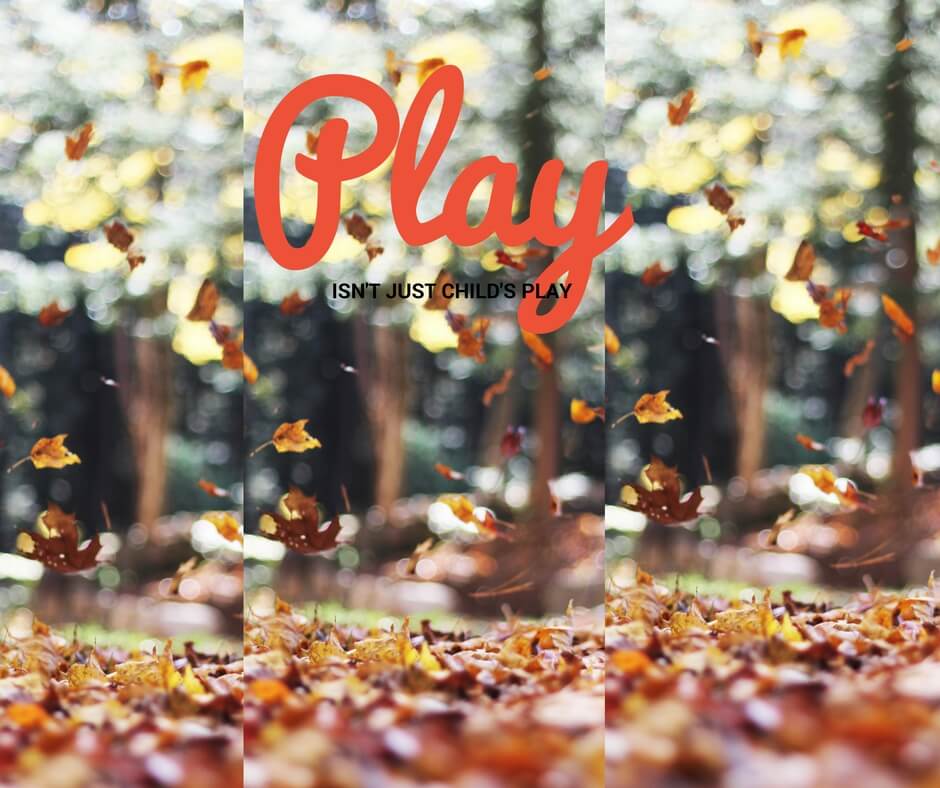If we think of the word ‘play’, some common images may come to mind…

- Children
- Dolls
- Blocks
- Toy trains
- Balls
- Hide and seek
- Tree houses…. the list goes on!
While all of these things are often valuable aspects of playtime, play itself is far more beneficial than many believe.
Play is absolutely crucial for the development of physical, cognitive and social skills. It is a way for children to learn about their world, develop physical abilities such as strength and coordination, understand their limits, learn how to communicate effectively, form relationships with others and manage their emotions. Obviously, play is also super fun! This helps children feel good about themselves- instigating positive emotions and sense-of-self, which lays the foundation for happy, resilient adults!
There are many types of play, and these develop at different ages as a child’s cognitive capacity advances. At a younger age, children often play alone or alongside others, but don’t really interact with them. However by age 4 (typically), children cooperate with others during play, through sharing toys, taking turns or assigning roles to others.
Infants use play to explore their senses and world, however at around 12mo of age Pretend play or Imaginative play emerges. In this important type of play, children create situations that differ than what’s literally happening. Children use objects and pretend they are something else (e.g. the box is a car), play with an object as if it is alive or refer to invisible objects (e.g. teddy is driving the car through the city) and attribute properties to objects (e.g. the car is red or fast). Pretend play also has a logical story line where children engage in role-play and solve problems along the way (e.g. uh oh dolly is sick, I’m doctor, I’ll fix dolly).
Occupational therapists often use play as a therapeutic medium. Observing and engaging in play with children allows us to assess a myriad of skills. For example, while pretend playing with blocks, OTs can observe a child’s movement of their body and manipulation of objects with their hands, whether they have any sensory preferences/dislikes, their ability to plan/carry out imaginary storylines or imitate real life roles/experiences, and their ability to regulate their emotions, if for example, their wonderful tall tower comes crashing down! Likewise, OTs use play in intervention to develop these skills and overcome other individual challenges.
Play is a fabulous, non-expensive tool that can be used by parents, caregivers and teachers to support and nurture children’s development. You can try:
- Introducing your child to toys or inanimate objects and allowing them to decide how to use them, or giving suggestions (e.g. this box looks like a car!)
- Role-play daily life activities (doctor visits) and make-believe contexts (e.g. fairyland) with your child.
- Encourage inside play as well as outside/nature exploration such as running and climbing.
- Ask your child curious questions to prompt them to expand their storyline.
Overall, be inquisitive, enthusiastic and engaged in whatever playful adventure your child may lead and most of all, have FUN. After all, the positive emotions associated with play are proven to be beneficial right across the lifespan!
So go on, get outside, build a fort and make sure those piranhas down below don't get a hold of you!
References
Parham, LD & Fazio, LS 2008, Play in occupational therapy for children, 2nd edn, Mosby Elsevier, St. Louis, Mo.
Stagnitti, K 2004, 'Development of a child-initiated assessment of pretend play’, Australian Occupational Therapy Journal, vol. 51, no. 3, pp. 170-170.
Stagnitti, K 2011, What is Pretend Play?, retrieved 4th July 2016, <https://www.learntoplayevents.com/wp-content/uploads/2016/02/What-is-Pretend-Play-Full.pdf>
Search
Categories
- Activities & Ideas (30)
- Adult (6)
- Adults (9)
- Early Development (30)
- Emotions (16)
- Food (3)
- Motor Skills (23)
- Nature & Outdoor Play (11)
- News & Information (36)
- OT Life (3)
- Play & Socialising (25)
- Self-Care (11)
- Sleep (2)
- Technology (7)
- Teenagers (8)
- TPAG Blog (1)
Tags
Recent Posts
- Connecting with the Community: Local Kids and Teens Community Groups November 27, 2023
- Social Skills for Teenagers July 31, 2023
- Twelve Months as an Occupational Therapist May 18, 2023
- The Effects of Screen Time & Setting Realistic Boundaries May 15, 2023
- Enhancing Communication & Safety with Hearing Loss April 20, 2023
